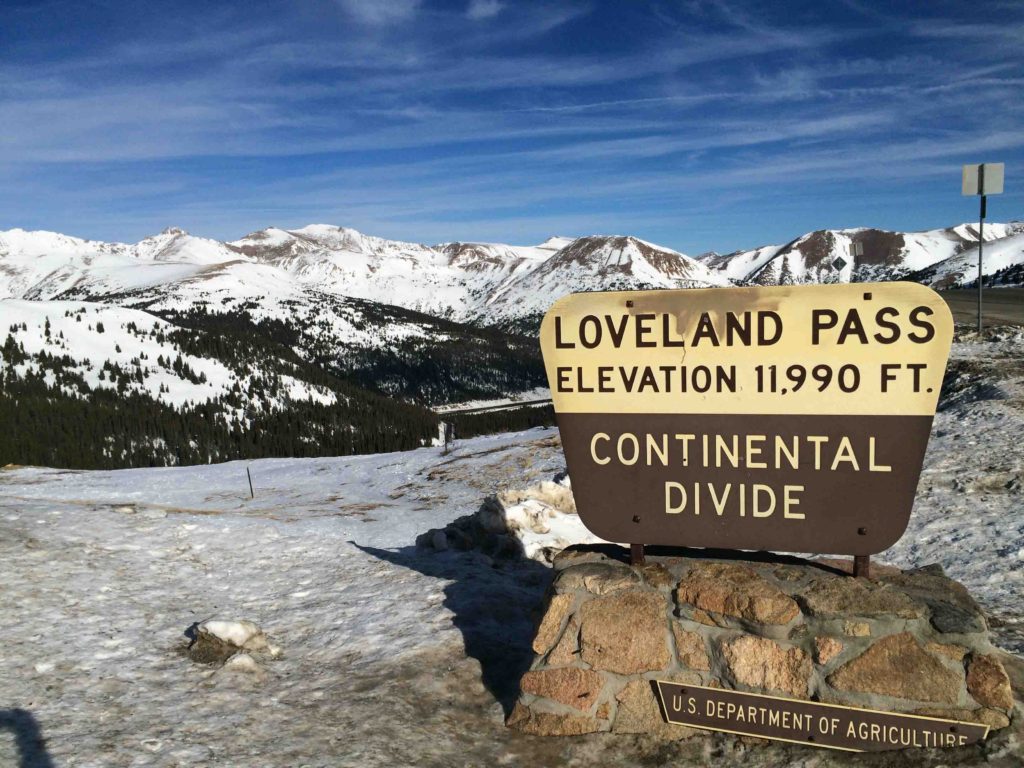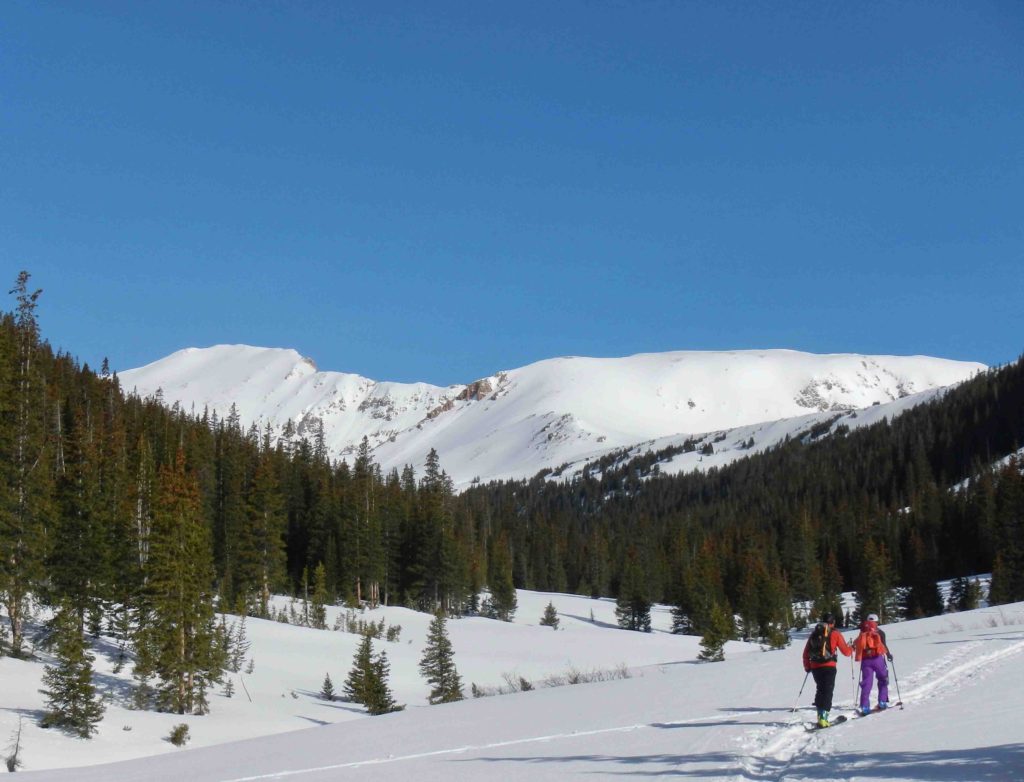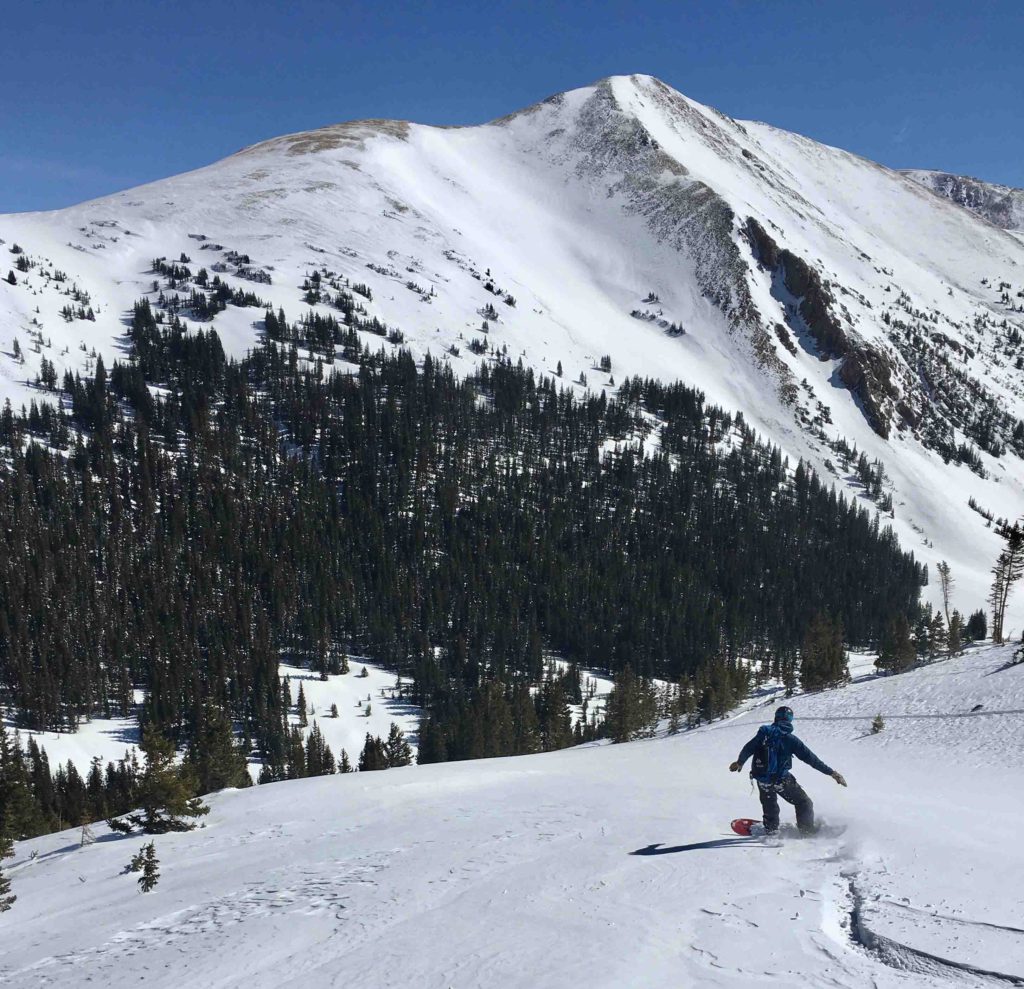In a Denver Post Article, MacKenzie Ryan labelled Loveland Pass as “one of the best worst-kept secrets in backcountry skiing.” Skiers and snowboarders have cemented Loveland Pass’s reputation as a backcountry destination by driving up and skiing down for nearly one hundred years. Explorers went deeper into the basins surrounding the Pass, leading to mechanical rope tows in the 1930s. Loveland Ski Area opened on the north side of the pass in 1936, and Arapahoe Basin began operations on the south side in 1946. In the 1980s and 1990s, snowboarders pioneered jumps on descents like Main Line and Ironing Board long before terrain parks existed at ski resorts. Fast forward to today, and you can find a full terrain park here, including kickers and rails. Many Front Range and Summit County sliders had their first backcountry experience at Loveland Pass.

Most folks view the Loveland Pass backcountry as simply the drop-in terrain at the top of the Pass. This backcountry ski guidebook presents the opportunity to go beyond the hustle and bustle of Loveland Pass. From Watrous Gulch to Porcupine Gulch, we follow US Highway 6 as it climbs dramatically to 11,990 feet; providing trailhead access to glacial valleys holding a lifetime of winter backcountry exploration. The guidebook terrain ranges from all day ski adventures in Dry Gulch and Herman Gulch, to a new perspective on how to use the Pass’s hitchhiking resources to access valleys not visible from the Highway. Our focus is winter skiing, and we also include a sample of ski mountaineering on thirteen thousand foot peaks directly accessible from Highway 6. The onset of spring and a stabilizing snow pack lures skiers into the high alpine to seek famous descents such as Dave’s Wave and the notorious Shit for Brains couloir.

MacKenzie Ryan was right, Loveland Pass is one of the best worst-kept secrets in backcountry skiing. Embrace the craziness of the Pass, and become part of the history of Colorado backcountry skiing. Have fun, but keep it real in avalanche terrain. This zone is the target of online forum rants about reckless backcountry skiing, and even the subject of a study quantifying the lack of safety gear present in the Pass’s backcountry user population. You and your friends need to bring avalanche equipment, training, and the mentality for safety to ensure a great experience at Loveland Pass.

